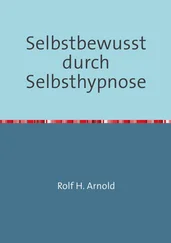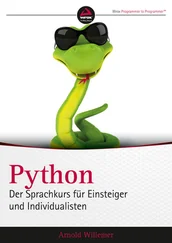Arnold Zable - Cafe Scheherazade
Здесь есть возможность читать онлайн «Arnold Zable - Cafe Scheherazade» весь текст электронной книги совершенно бесплатно (целиком полную версию без сокращений). В некоторых случаях можно слушать аудио, скачать через торрент в формате fb2 и присутствует краткое содержание. Город: Melbourne, Год выпуска: 2001, Издательство: Text Publishing Company, Жанр: Проза, на английском языке. Описание произведения, (предисловие) а так же отзывы посетителей доступны на портале библиотеки ЛибКат.
- Название:Cafe Scheherazade
- Автор:
- Издательство:Text Publishing Company
- Жанр:
- Год:2001
- Город:Melbourne
- ISBN:нет данных
- Рейтинг книги:4 / 5. Голосов: 1
-
Избранное:Добавить в избранное
- Отзывы:
-
Ваша оценка:
- 80
- 1
- 2
- 3
- 4
- 5
Cafe Scheherazade: краткое содержание, описание и аннотация
Предлагаем к чтению аннотацию, описание, краткое содержание или предисловие (зависит от того, что написал сам автор книги «Cafe Scheherazade»). Если вы не нашли необходимую информацию о книге — напишите в комментариях, мы постараемся отыскать её.
Cafe Scheherazade — читать онлайн бесплатно полную книгу (весь текст) целиком
Ниже представлен текст книги, разбитый по страницам. Система сохранения места последней прочитанной страницы, позволяет с удобством читать онлайн бесплатно книгу «Cafe Scheherazade», без необходимости каждый раз заново искать на чём Вы остановились. Поставьте закладку, и сможете в любой момент перейти на страницу, на которой закончили чтение.
Интервал:
Закладка:
Yet it could steal upon them any time: an aching sense of loss.
During a raid, or as they went about their daily work, such emotions had to be suppressed. They could cause a lapse in judgment, a miscalculation at a vital moment. They could cost a comrade's life. This longing would steal upon them, nevertheless.
Even as they slept, it would enter their dreams in the form of a loved one: a mother, father, husband, wife, a lover or child.
So intense were these images the dreamers did not want to wake.
They reached out to touch the mirage, but found themselves back in their underground shelters, buried beneath the earth. And there were those times late at night by a dying fire, when they allowed themselves to summon a loved one's face in the glow of the embers. Or their image would be conjured up by a song:
The flame in the hearth flickers, The sap on the pine flows like tears.
The accordion is singing to me
The song of the smile in your eyes.
You are far from me, so very far;
Between us stretch forests and fields, Between us the distance is vast.
Yet, death is so very near
Sing, my accordion, Sing and defy the wind, 175
My twisted fate please unravel
And its meaning, I beg you, make clear.
Even as Avram listened to this most loved of Russian partisan songs, even as he looked about him and saw the tears in his comrades' eyes, and heard the hissing of the dying flames; even then, a future battle line was being drawn; between love and rage; between the desire to receive a lover's warmth, and the impulse to recoil; between a belief in life and a loss of faith.
It was to become his greatest struggle, and it would truly begin only when the fighting was fully done.
In the first week of July 1944, Radio Moscow echoed in the
Rudnicki swamps with orders from central command: abandon the forests! Pursue the retreating enemy! Join the Red Army advance!
The partisans trekked towards Vilna. As they moved through the Ponary woods, past the sites of the killing fields, they came across a freshly dug grave. Avram can still see it, the earth heaving, the grains of dirt sliding down the mounds. The final massacre had taken place just hours before their arrival. While they retreated, German soldiers had murdered sixty Polish priests.
A pall of crimson hung over the ancient city. Red Army tanks led the assault. Artillery battered the walls. A hunger for revenge seethed in the partisan ranks. For five days the battle raged over the paved streets and cobblestone lanes, from house 177 to house, building to building, through charred courtyards and vacant lots. German soldiers and collaborators were rounded up and shot. Vilna shook under the onslaught.
Then it was oven An eerie stillness prevailed. The partisans marched through desolate streets. They wept for the loss of their loved ones. They spat on the graves of their enemies; and they lamented the beloved city that had been laid to waste.
This would be the worst night for Avram, the night of his liberation. His battalion was billeted in `Napoleon's palace", a Vilna landmark, said to have gained its name in 1812 during his ill-fated Russian campaign. The partisans were issued with new boots, several hundred roubles, and discharged by the army command. Avram's comrades dispersed throughout the city to rejoin surviving family and friends. Avram remained in the palace. There was no one to seek out.
He paced the corridors, the palatial suites. He stood on the balconies and gazed at bombed-out streets. And the darkness claimed him. For the first time in his life, he was completely alone. He was free. The war seemed over. But he was not yet saved. His entire family had vanished into unmarked graves.
He did not know what to do with himself. He could not rest. He could not bear his solitude. He wandered the rooms with mounting panic. On the night of his liberation something seemed to give way within him: the will to live. There was no past and no future. All that he had once held so dear seemed to have been unmasked as a cruel lie.
178
Vilna had become a netherworld, caught between the living and the newly dead, a world of transmigrating souls. Avram surrendered to events that appeared to be beyond his control. He seethed with a sense of loss, and an overwhelming desire for vengeance. He dreamt of confronting his tormentors, the murderers of his loved ones. He imagined tearing them limb from limb, setting fire to their homes, their villages, their prized possessions. He dreamt of watching them as the terror rose in their eyes.
Yet there were times when even this one remaining desire was replaced by fatigue. "I had seen too much brutality, too much killing," says Avram. "I could not take it any longer All I wanted was to forget. But it was still taking place. Even now, on the streets of Vilna, I could not avoid it. I was part of it. The war had not truly ended. There were times when we believed it would never end.
When I had entered Vilna with the Red Army, I came across the body of one of my former teachers, Opeshkin was his name. He was one of my childhood heroes. He had a passion for knowledge, a love of language and literature.
"He too had come out into the forests. He had fought with both weapons and words. He composed poems that depicted our plight.
When we found him, his body was still warm. We had arrived just half an hour too late. I felt impotent. Life seemed to be a mere game of chance."
Again the stories are cascading, as we move with Avram through the ruins of Vilna, seeking out informers, dragging them from their places of hiding.
179
"We came upon a former inmate of the ghetto, who had collaborated with the Gestapo. He hailed us as liberators. When he saw that we were going to execute him, he fell to his knees and begged for his life. His wife was screaming. She sank to her knees beside him. I tried to stop my comrades, but they were too hardened. And I was tired. So tired.
"He was sentenced to immediate death. "Killing him is not enough," said one the partisans. He took out a knife and slowly began to cut into his flesh. We had to drag him away from the screaming prisoner. A comrade took out a pistol and shot the informer on the spot. It was an act of kindness. Otherwise he would have been torn to pieces.
"The act of killing, I could not take it any more. I suppressed my feelings. I had no choice. I would have been crushed. Many times I just wanted to lie down and close my eyes. It was a sweet thought. I wanted to be rid of all feeling."
Avram's life hung in the balance. The world was precariously poised. The Red Army was on the advance. The front was moving westwards. Vaselenko, a former comrade and partisan commander, took Avram under his wing. As the new director of railways in the Vilna district, he was anxious to secure able workers. Avram was put in charge of trains that delivered arms and food supplies to the front.
Avram pursued the job with characteristic zeal, and a sense of abandon. He no longer cared. His survival instincts had 180 deserted him. One morning it was reported that someone had raided a shipment of vodka. While he investigated the report, a Red Army officer approached and asked for several bottles of the prized spirits. Avram refused, pulled out a revolver, and threatened to shoot if the officer disobeyed his orders.
That evening Avram was summoned to the office of the Red Army captain in charge of the station. "Is it true that you threatened one of my men?" the captain asked. Avram did not deny the charge.
The offending officer was called into the room; and again Avram refused his demands for vodka, even though they were supported by the station master.
"They could not believe I wasn't corrupt," says Avram. "They searched my room and my few belongings. They could not find even one bottle. They were angry. And they saw I was a fool. I did not know how to play their system. Take a bit, give a bit, make a bit on the side, and get drunk. Those were the unspoken rules of the game.
Читать дальшеИнтервал:
Закладка:
Похожие книги на «Cafe Scheherazade»
Представляем Вашему вниманию похожие книги на «Cafe Scheherazade» списком для выбора. Мы отобрали схожую по названию и смыслу литературу в надежде предоставить читателям больше вариантов отыскать новые, интересные, ещё непрочитанные произведения.
Обсуждение, отзывы о книге «Cafe Scheherazade» и просто собственные мнения читателей. Оставьте ваши комментарии, напишите, что Вы думаете о произведении, его смысле или главных героях. Укажите что конкретно понравилось, а что нет, и почему Вы так считаете.












